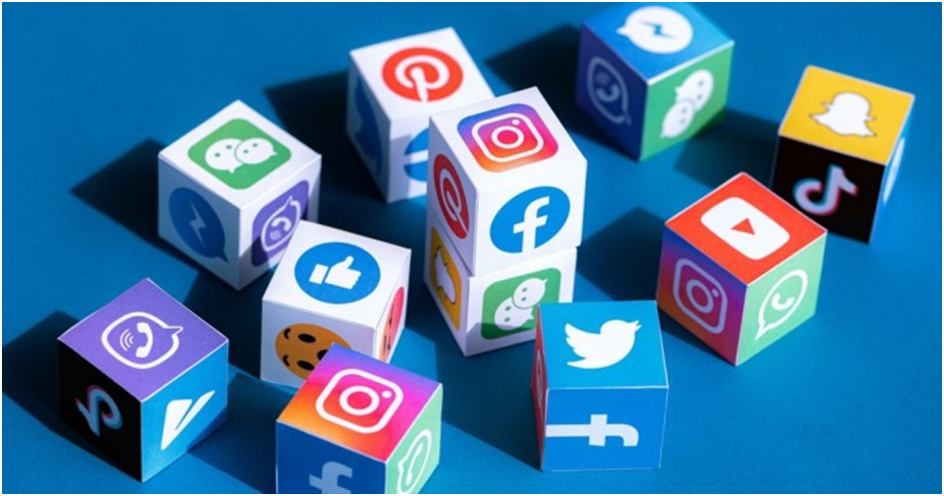Why Social Media Marketing is Crucial for Your Brand’s Growth

In today’s hyperconnected world, social media has transformed from a simple networking tool into a powerful marketing platform. For businesses of all sizes, social media is no longer optional—it is an essential component of any growth strategy. With billions of users actively engaging daily, platforms like Facebook, Instagram, LinkedIn, TikTok, and Twitter have become critical arenas where brands can connect with their audience, foster relationships, and drive meaningful results.
This blog explores why social media marketing is vital for your brand’s growth and how to leverage its potential for long-term success.
The Growing Importance of Social Media Marketing
1. Unparalleled Audience Reach
Social media platforms have billions of active users worldwide. For instance:
- Facebook boasts over 2.9 billion monthly users.
- Instagram engages 1.5 billion active users.
- TikTok’s audience continues to grow, reaching over 1 billion users.
These numbers demonstrate the massive opportunity for brands to tap into an expansive and diverse user base.
2. Enhanced Customer Engagement
Social media fosters two-way communication. Unlike traditional advertising, it enables brands to engage directly with their audience, answer queries, and respond to feedback in real time. This interaction builds trust and strengthens customer loyalty.
3. Cost-Effective Marketing
Compared to traditional advertising methods, social media marketing is budget-friendly. Platforms like Facebook and Instagram allow businesses to run highly targeted campaigns at a fraction of the cost of TV or print ads, making it ideal for startups and small businesses.
4. Measurable Performance Metrics
Social media marketing offers detailed analytics. Metrics like engagement rates, click-through rates, and conversions allow you to measure your campaign’s effectiveness and make data-driven decisions.
How Social Media Drives Brand Growth
1. Increases Brand Awareness
Social media is a powerful tool for increasing your brand’s visibility. Consistent posting, engaging content, and targeted advertising ensure that more people recognize your brand. When users share your content, your reach extends even further.
2. Drives Website Traffic
Strategic use of social media platforms can significantly boost website traffic. By sharing blog posts, product updates, and promotions with a compelling call-to-action (CTA), you can direct users to your website, increasing the chances of conversion.
3. Builds Brand Authority
By sharing valuable, informative content and engaging with your audience, social media helps establish your brand as a thought leader in your industry. Authority builds trust, and trust drives growth.
4. Facilitates Lead Generation
Social media platforms are excellent for generating leads. Features like lead generation forms on LinkedIn or Instagram Stories with swipe-up links simplify the process of capturing user information.
5. Encourages Customer Retention Social media marketing keeps your brand top-of-mind. By continuously engaging with your audience through posts, stories, and direct messages, you maintain customer interest and loyalty.

Key Social Media Strategies for Brand Growth
1. Define Your Goals
Every successful social media campaign begins with clear objectives. Whether your goal is to increase brand awareness, drive sales, or grow your follower base, defining your goals ensures focused efforts.
2. Know Your Audience
Understanding your target audience is essential. Use analytics tools to identify their demographics, preferences, and online behavior. This data enables you to create tailored content that resonates with your audience.
3. Optimize Content for Each Platform
Not all social media platforms are the same. Tailor your content to match the unique tone and audience of each platform:
- Instagram: Visual content like photos, reels, and stories.
- LinkedIn: Professional and thought leadership content.
- TikTok: Creative, short-form videos that entertain and educate.
4. Leverage Paid Advertising
Organic reach on social media can be limited. To amplify your visibility, invest in paid advertising campaigns. Platforms like Facebook and Instagram offer advanced targeting options based on age, location, interests, and more.
5. Post Consistently
Consistency is key to staying relevant on social media. Use scheduling tools like Hootsuite or Buffer to plan posts in advance and maintain a steady presence.
6. Harness the Power of Influencers
Influencer marketing has become a cornerstone of social media strategies. Collaborate with influencers who align with your brand to amplify your reach and gain credibility.
7. Monitor and Adapt
Social media trends change rapidly. Stay updated with platform updates, trending hashtags, and new features. Continuously monitor your campaigns and adjust strategies for maximum impact.
Top Social Media Platforms for Brand Growth in 2025
1. Facebook
Despite competition, Facebook remains a dominant force. Its robust advertising tools, combined with features like groups and events, make it ideal for community building and targeted marketing.
2. Instagram
Instagram’s visual nature makes it perfect for showcasing products and brand personality. With reels, stories, and shoppable posts, it’s a must-have for brands looking to engage younger audiences.
3. LinkedIn
LinkedIn is the go-to platform for B2B marketing. By sharing professional insights and networking with industry leaders, brands can enhance their authority and generate valuable leads.
4. TikTok
With its skyrocketing popularity, TikTok offers unparalleled opportunities for creative, short-form content. Brands can engage audiences through challenges, tutorials, and relatable storytelling.
5. Twitter (Now X)
Twitter remains relevant for real-time updates, customer support, and trending conversations. It’s especially effective for tech-savvy audiences and industries.
Challenges of Social Media Marketing
While social media marketing is powerful, it comes with challenges:
1. Algorithm Changes
Frequent changes to algorithms can impact your organic reach. To counter this, focus on engaging content and consider investing in paid promotions.
2. Content Saturation
The sheer volume of content on social media makes it challenging to stand out. Unique, high-quality content tailored to your audience is crucial.
3. Managing Negative Feedback
Brands must address negative comments or reviews promptly and professionally to maintain their reputation.
4. Measuring ROI
Quantifying the return on investment (ROI) from social media campaigns can be tricky. Use analytics tools to track performance and fine-tune your strategy.
The Future of Social Media Marketing
As technology evolves, so will social media marketing. Here’s what to expect:
1. AI-Powered Personalization
Artificial intelligence will enable brands to deliver hyper-personalized content, improving engagement and conversions.
2. AR and VR Integration
Augmented and virtual reality will revolutionize how brands interact with audiences, offering immersive shopping experiences and virtual events.
3. Decentralized Platforms
Decentralized social networks may rise in popularity, giving users more control over data and content.
4. Sustainability and Social Responsibility
Consumers increasingly value brands that align with their ethical values. Social media campaigns focused on sustainability and inclusivity will resonate strongly.
Conclusion
Social media marketing is not just a trend—it’s an indispensable strategy for driving brand growth in 2025 and beyond. By leveraging the right platforms, creating engaging content, and staying adaptable to industry trends, you can build a robust online presence, foster meaningful relationships, and achieve your business goals.
Investing in social media marketing is an investment in your brand’s future. Prioritize authenticity, creativity, and consistency to stay ahead in the ever-competitive digital landscape.





